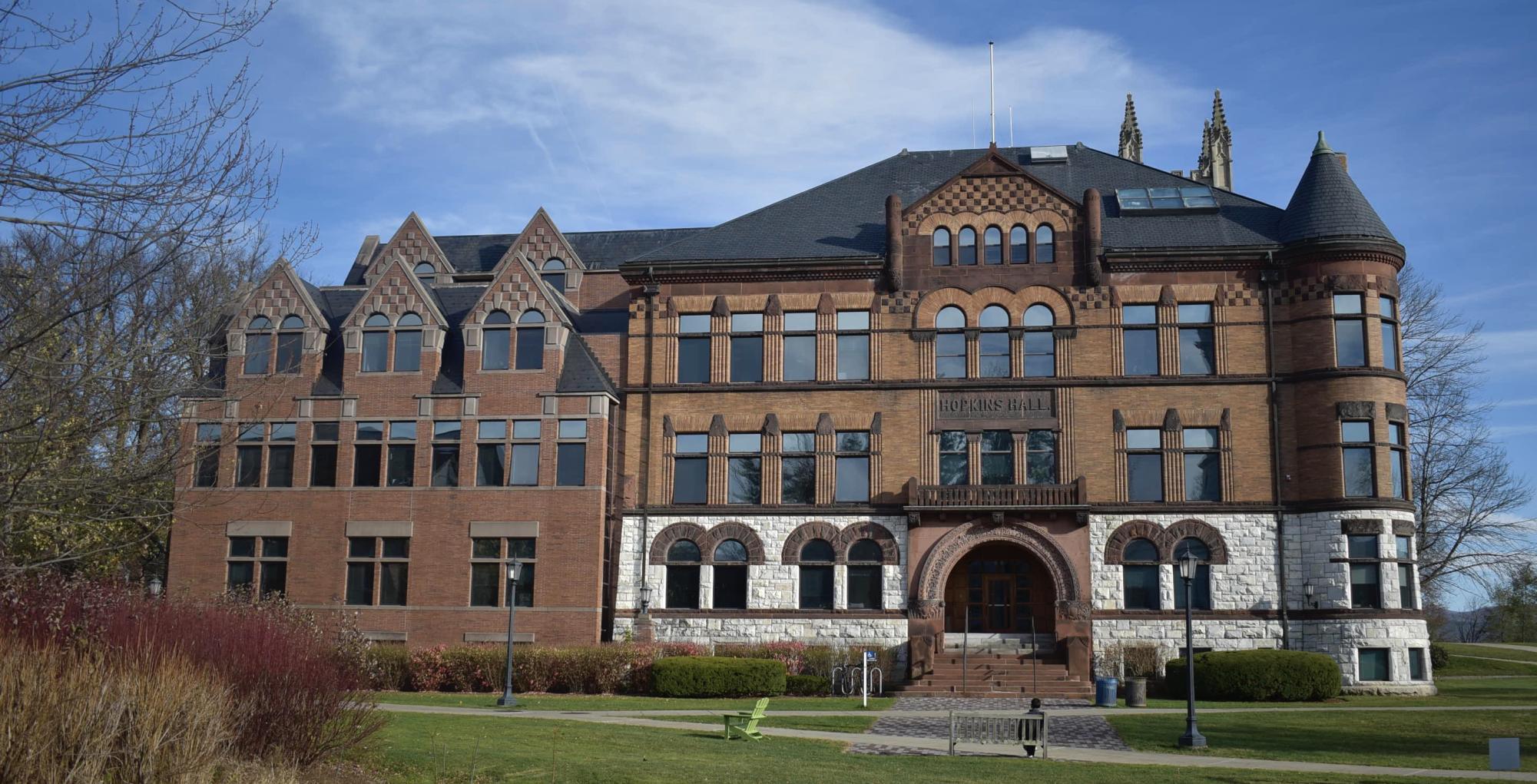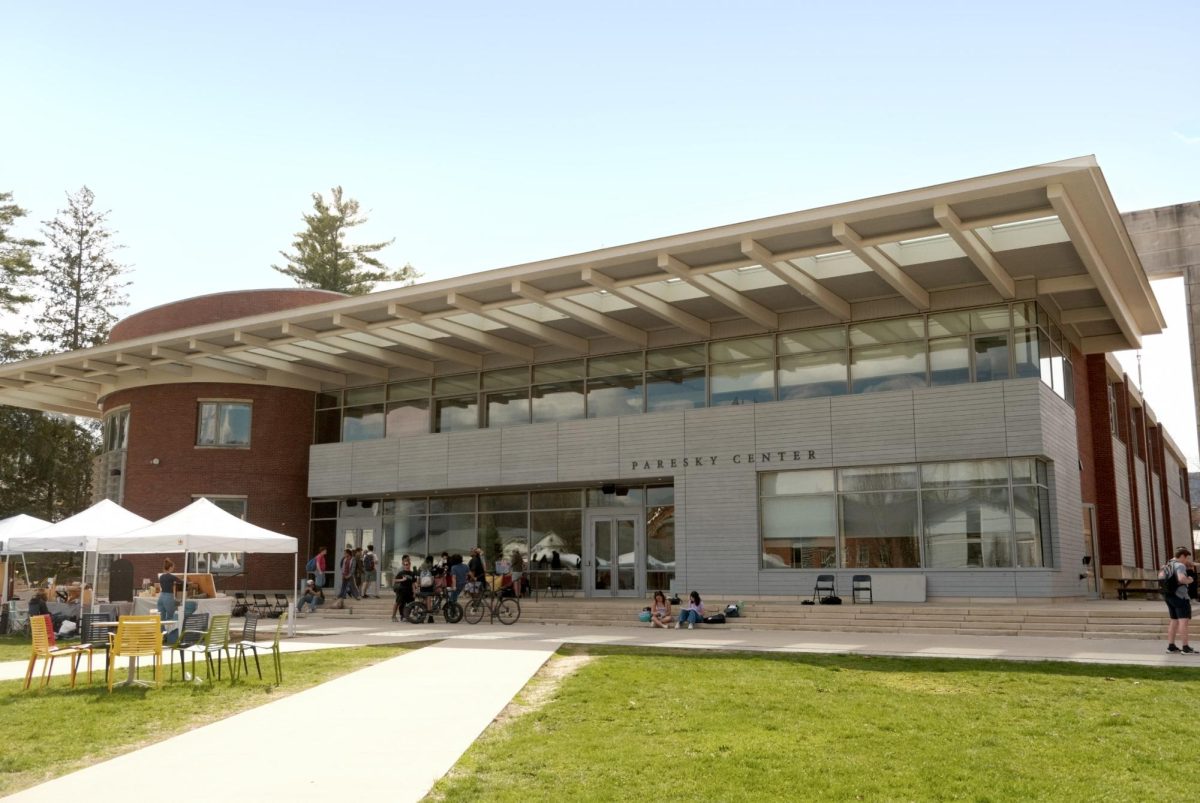
The Office of Sexual Assault Prevention and Response (SAPR) is vacant following former Violence Prevention Coordinator Riley Kavanagh’s departure on Friday. Multiple services offered by SAPR, including the College’s sexual assault prevention and response hotline, have been paused as a result.
Assistant Director for Health Education Laini Sporbert is serving as interim director of the Prevention, Education, and Advocacy in Community (PEACe) office, which oversees SAPR, Dean of the College Gretchen Long announced in an all-campus email on Oct. 31. Sporbert is the sole employee of the PEACe office, as former Director of the PEACe Office Meg Bossong ’05 left the College in May.
Bossong provided the College notice of her departure in January and gradually decreased her hours at the College with the hopes of easing the process of finding her replacement. “When I accepted [my current job] offer in early January, I proposed a phased reduction in hours to 32 then 24 then 20 hours a week over the course of the semester,” she wrote in an email to the Record. “My hope was that it would smooth the transition without putting too much extra burden on Riley, Laini, and others, and give the College plenty of time to post the job and make a hire so there wouldn’t be a disruption in services.”
Despite Bossong’s advanced notice of departure, the College did not post a job listing for the position until September. Long attributed the delay to the College’s transition to the HR platform Workday and to its decision to restructure the College’s sexual assault prevention and response offices, adding that she did not want to create the job posting until she knew to whom the new coordinator would report.
In her Oct. 31 email, Long directed students seeking intimate violence prevention and response counseling to the Elizabeth Freeman Center (EFC), a sexual and domestic violence resource organization located in Pittsfield. Long’s email instructed students seeking immediate support to call EFC’s hotline.
The College’s own confidential hotline was previously managed by SAPR staff during business hours on weekdays and by the EFC staff during all other hours, but Kavanagh told the Record that the hotline has been discontinued in her absence. According to SAPR’s website, the hotline provided students with safety assessments and access to resources including medical care, no-contact orders, and safe housing. The Record found that it now directs callers to Campus Safety Services.
In an email to the Record, Long noted that, in the past, the College has directed students to the EFC hotline when the PEACe office was understaffed. She wrote that the College has a “memorandum of understanding” with the EFC, which grants the College access to the EFC’s hotline.
SAPR is also responsible for providing sexual assault prevention and response trainings in order to maintain compliance with the National Collegiate Athletics Assocation (NCAA). The trainings are mandated for all varsity sports and club rugby teams by federal law.
Prior to Kavanagh’s departure, trainings were co-facilitated by SAPR and the peer educators, a group of students who engage in sexual violence advocacy work. The trainings for NCAA compliance consisted of activities and discussions about healthy behaviors and relationships on campus, peer educator Maya Sachs ’27 wrote to the Record. Until the SAPR office is restaffed, the trainings will now include only online segments, Kavanagh wrote to the Record.
The College still remains compliant with the NCAA regulations, according to Vice President for Institutional Diversity, Equity and Inclusion Leticia S.E. Haynes ’99.
“In the past, workshops led by the SAPR team were delivered to athletic teams throughout the academic year, during both semesters,” Haynes wrote to the Record. “We are just a couple of months into the school year and expect that implementation of these workshops will soon resume and more workshops will be added over the course of the year.”
Sachs said that no one from the College has clearly communicated the impact the vacancies in SAPR will have on the peer educators’ work. “We’re not really sure what our role is supposed to look like or going to look like,” she said.
Kavanagh told the Record that the peer educator program would not resume until new staff members were hired to oversee sexual assault prevention and response.
The PEACe office and thus SAPR fall under the greater supervision of the dean’s office. The Office of Institutional Diversity, Equity, and Inclusion (OIDEI) is set to assume responsibility for SAPR, which will be renamed the Office of Intimate Violence Prevention and Response (OIVPR). The transition will not take place until the College hires a violence prevention coordinator to head OIVPR, Haynes wrote to the Record.
When the transition takes place, OIVPR and the Title IX office will both report to Haynes.
Because Bossong’s replacement was not hired by the fall and Sporbert is the only staff member in the PEACe office, Sachs expressed concerns that the College is unable to provide adequate counseling to survivors. “A burden falls on a victim of sexual abuse rather than on the school to provide counseling,” Sachs said. “It’s like, ‘You must go advocate for yourself.’”
“Laini is amazing, but she has to do so much, and I just am afraid that some students will feel like there’s nowhere to go,” Sachs added.
Correction: A previous version of this article mislabeled the College’s peer educator program as “Peer Health,” which is a separate program. The peer educators are overseen by the Violence Prevention Coordinator and carry out prevention workshops and advocacy, while Peer Health is overseen by Sporbert and provides health supplies and information to students.














